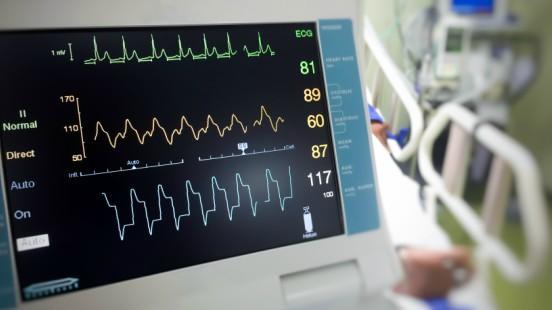The Importance of ECG Monitoring in Modern Health Care?

Why ECG Monitoring is Essential for Heart Health
Heart disease remains the leading cause of death worldwide, claiming millions of lives each year. Early detection and continuous monitoring are crucial in managing heart health and preventing severe complications. Electrocardiogram (ECG) technology, now integrated into wearable devices like the PulseNexa™ Vitali Health Smartwatch, has revolutionized the way we monitor our heart health. This blog explores the importance of ECG monitoring, its benefits, and how the Vitali smartwatch can help you stay on top of your heart health.

Understanding ECG Monitoring
An electrocardiogram (ECG) records the electrical activity of the heart over a period of time. It is a crucial tool in diagnosing various heart conditions, including arrhythmias, heart attacks, and other cardiac abnormalities. By analyzing the heart’s electrical signals, an ECG can provide invaluable information about the heart's rhythm, rate, and overall function.
The Role of ECG in Heart Health
-
Early Detection of Heart Conditions: ECG monitoring can detect abnormal heart rhythms and other cardiac issues before they become severe. Early detection is key to preventing serious complications such as stroke or heart failure.
-
Monitoring Chronic Conditions: For individuals with chronic heart conditions, continuous ECG monitoring helps in managing their health more effectively. It allows for timely adjustments in treatment and lifestyle changes.
-
Evaluating Treatment Efficacy: ECG data can be used to evaluate the effectiveness of treatments and medications. Regular monitoring helps in adjusting treatments to achieve the best possible outcomes.
-
Preventive Health Care: Regular ECG monitoring can serve as a preventive measure, helping to identify risk factors and take proactive steps to maintain heart health.
The Evolution of ECG Technology: From Clinics to Wearables
Traditionally, ECG monitoring required a visit to a healthcare facility. However, with advancements in wearable technology, ECG monitoring has become more accessible and convenient. Devices like the PulseNexa™ Vitali Health Smartwatch offer continuous, real-time ECG monitoring, making it easier for individuals to keep track of their heart health from the comfort of their homes.
Introducing the PulseNexa™ Vitali Health Smartwatch
The PulseNexa™ Vitali Health Smartwatch is designed to provide medical-grade accuracy in heart monitoring. Equipped with advanced sensors and unique laser technology, the Vitali smartwatch offers comprehensive health monitoring, including ECG, blood pressure, and blood oxygen levels.
Key Features of the PulseNexa™ Vitali Health Smartwatch:
- High-Performance Sensors: Captures precise ECG data within 40 seconds.
- User-Friendly Interface: Simple and easy to use, making health monitoring accessible to everyone.
- Comprehensive Health Data: Provides detailed insights into heart health through a connected smartphone app.
Benefits of Using the PulseNexa™ Vitali Health Smartwatch
-
Accurate ECG Monitoring: With medical-grade sensors, the Vitali smartwatch ensures precise and reliable ECG readings, helping you detect any irregularities in your heart’s rhythm.
-
Convenient Health Tracking: The smartwatch pairs with a smartphone app, allowing you to access your ECG data anytime, anywhere. This makes it easy to stay informed about your heart health and share data with your healthcare provider.
-
Holistic Health Monitoring: In addition to ECG, the Vitali smartwatch monitors blood pressure, heart rate, and blood oxygen levels, providing a comprehensive view of your health.
-
Proactive Health Management: Regular monitoring enables you to take proactive steps in managing your heart health, reducing the risk of severe complications.
ECG monitoring is a critical aspect of heart health management. The PulseNexa™ Vitali Health Smartwatch offers a convenient, accurate, and comprehensive solution for continuous heart monitoring. By integrating advanced technology with user-friendly design, it empowers individuals to take control of their heart health, leading to better outcomes and improved quality of life.


